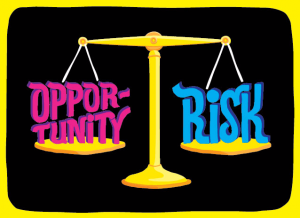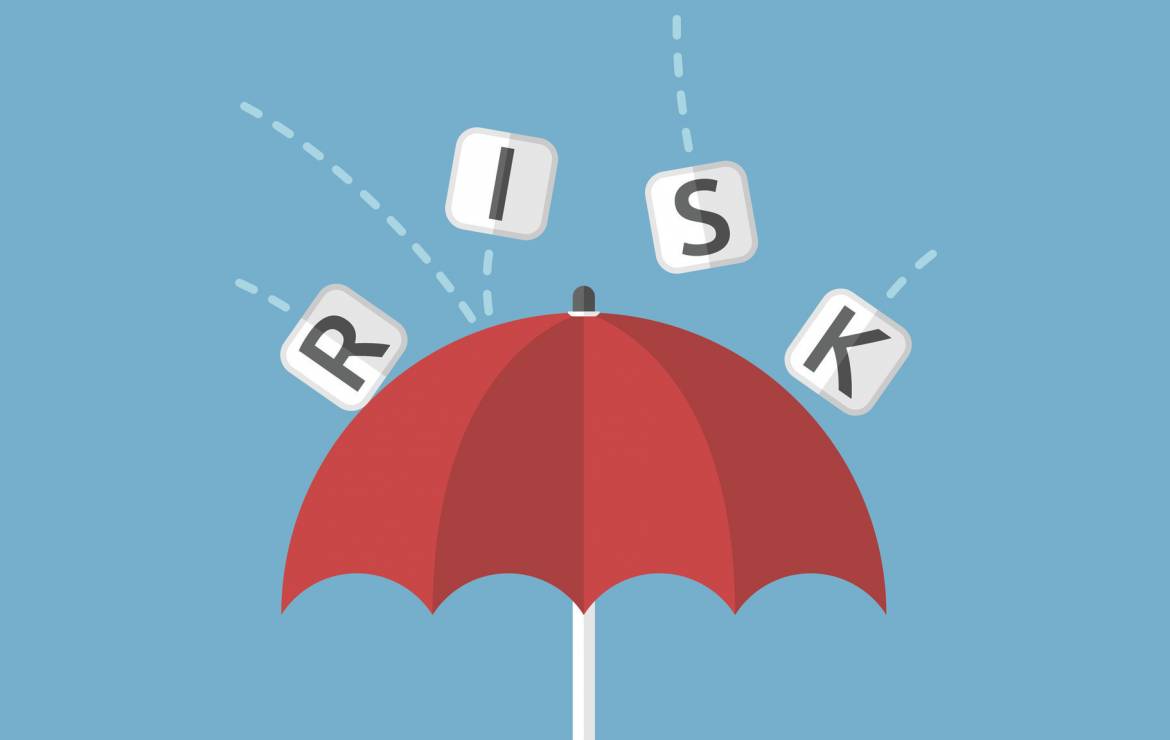Are You Taking the Risks or Playing it Safe?
TAKING RISKS…
16 JULY 16:45H POSTED BY JAMES OGLE, MSW, LCSW
People often experience conflicting emotions when considering whether or not to take a risk. Individuals may consider risk-taking to be a dangerous process that may result in potential negative outcomes. For example, some people consider gambling to be an ill-advised risk. Others argue that avoiding risk may lead to potential negative outcomes. Some individuals consider total risk avoidance or what is commonly referred to as “playing it safe,” leads to a life of stagnation and regret. As it turns out, there are many individuals who get stuck between these opposing views. I have clients who are paralyzed by anxiety, wanting answers if they should take a specific risk or not.

When I work with clients who want help determining whether or not they should take a risk, I first inform them that I cannot provide a specific recommendation as to what decision they should make. Rather, I provide psychoeducation on how to evaluate risk through motivational interviewing. First, I help a client to develop a pros and cons list for not taking the risk. Then I help a client to make a pros and cons list of taking the risk. After that process, we complete a visual square chart. The top two squares include the pros and cons of taking the risk and the bottom two squares state the pros and cons of not taking the risk.
Prior to coming to therapy, individuals often evaluate the pros and cons of both taking or not taking a specific risk. However, clients do not typically move to the next step in the decision making process which is to identify specific items in each square they value most. During this process, I ask clients to consider an item if they do not place value on a potentially harmful consequence that might possibly occur. If potentially harmful consequences are not important to the client, then those items are left off the chart. Upon conclusion of this process, the only items that should remain in each square are items the client most values.
While reflecting on the items remaining in each square, I ask clients to reflect on how they may feel short-term versus long-term if they took the risk. Clients may begin to realize that they avoid taking risks to avoid painful feelings. Clients also may realize that they may feel better long-term if they make a difficult decision now. This process not only allows clients to make healthier decisions, it also allows individuals to avoid experiencing overwhelming anxiety when contemplating if taking a risk is worth it.
Jim Ogle, MSW, LCSW

Jim is a Licensed Clinical Social Worker (LCSW) who earned his Master’s degree in Social Work from Boston College. Having grown up in the North Shore area, Jim brings a familiarity of the community to the practice. He has been with Attention to Wellness for over a year and has over 16 years’ experience working with both adolescents and adults.
Jim has provided treatment in a variety of clinical settings to adolescents, adults, and families experiencing depression, anxiety, conduct issues, and other mood disorders. He brings six years’ experience working in court systems with youth on probation who were at risk of being removed from their home, and their families. Jim also brings experience providing anger management and drug counseling groups within multiple schools. Currently, Jim also works at a high school providing social work services to students who have an Individualized Education Program.
Jim’s approach with both adolescents and adults incorporates techniques from strengths-based, Cognitive Behavioral Therapy/Dialectical Behavioral Therapy (CBT/DBT), Motivational Interviewing, and Structural Family Therapy to help clients identify and eliminate barriers that inhibit them from achieving their goals.


Add Comment